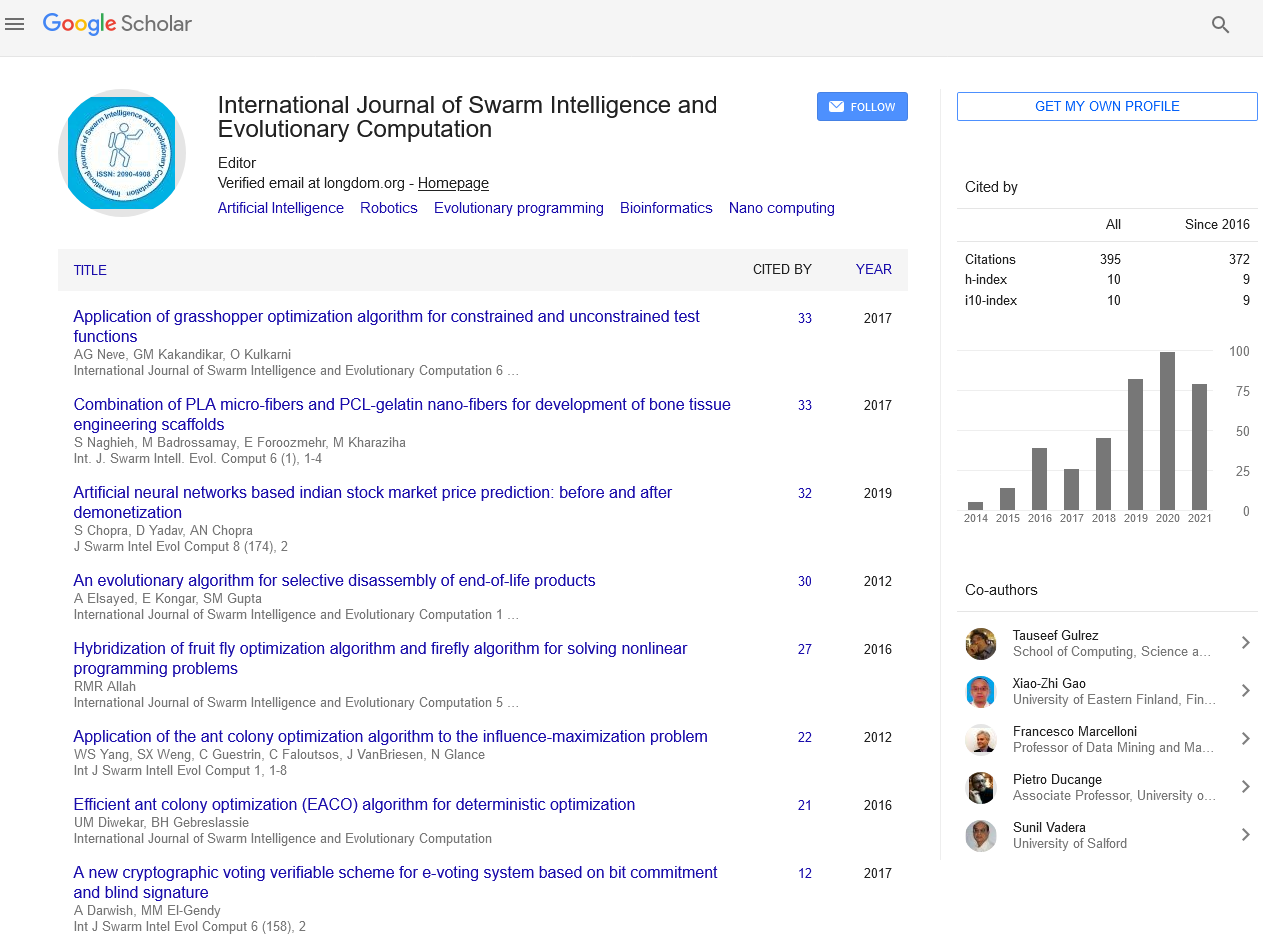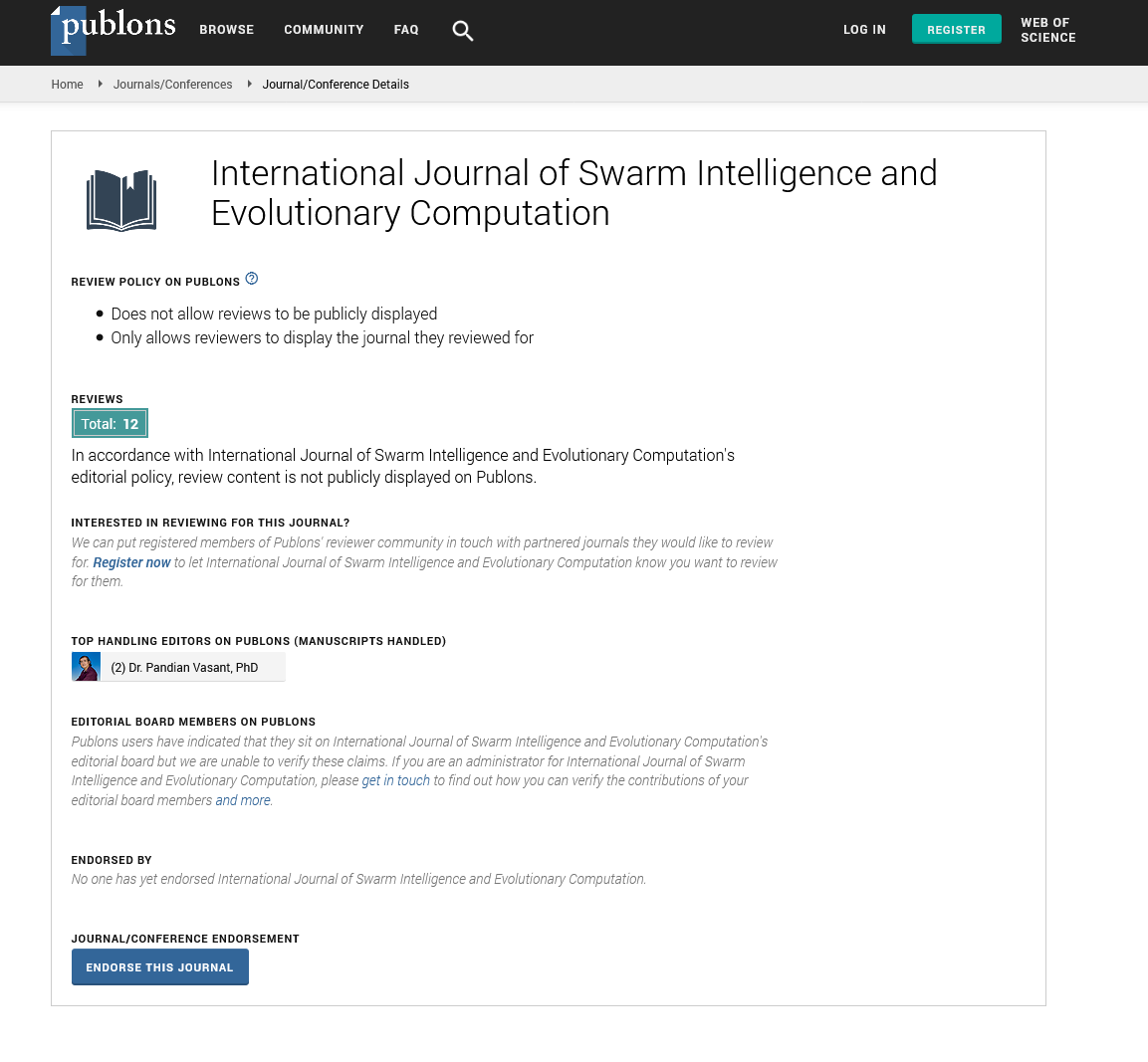Indexed In
- Genamics JournalSeek
- RefSeek
- Hamdard University
- EBSCO A-Z
- OCLC- WorldCat
- Publons
- Euro Pub
- Google Scholar
Useful Links
Share This Page
Journal Flyer

Open Access Journals
- Agri and Aquaculture
- Biochemistry
- Bioinformatics & Systems Biology
- Business & Management
- Chemistry
- Clinical Sciences
- Engineering
- Food & Nutrition
- General Science
- Genetics & Molecular Biology
- Immunology & Microbiology
- Medical Sciences
- Neuroscience & Psychology
- Nursing & Health Care
- Pharmaceutical Sciences
Michael Vrahatis

Michael Vrahatis
Professor, Department of Mathematics
University of Patras, Greece
Biography
Dr. Michael N. Vrahatis is a Professor in the Department of Mathematics at the University of Patras, Greece. He is founder of the Computational Intelligence Laboratory of the same department which he has been directing since its beginning in 2004. He has been teaching at the undergraduate level for more than 27 years. In addition, he has a teaching experience of more than 19 years at the post graduate level. Several of his doctoral and/or postdoctoral students serve as full professors, associate professors, assistant professors or lecturers in Greece, England and Japan. He was a visiting research fellow at the Department of Mathematics, Cornell University, Ithaca, NY, USA (1987–1988) and a visiting professor to the INFN (Istituto Nazionale di Fisica Nucleare), Bologna, Italy (1992, 1994, and 1998); the Department of Computer Science, Katholieke Universiteit Leuven, Belgium (1999); the Department of Mechanical Engineering, Center for Ocean Engineering, Design Laboratory, MIT, Cambridge, MA, USA (2000); and the Collaborative Research Center “Computational Intelligence” (SFB 531) at the Department of Computer Science, University of Dortmund, Germany (2001). He was a visiting researcher at CERN (European Organization of Nuclear Research), Geneva, Switzerland (1992) and at INRIA (Institut National de Recherche en Informatique et en Automatique), Sophia–Antipolis, France (1998, 2003, 2004 and 2006). The corpus of his work consists of over 400 publications in books, journals, edited volumes, and conference proceedings. The accumulated impact factor (ISI–JCR 2012) of his published journal papers is 192.9 (July 2013). According to Google Scholar, his work has currently been cited over 8400 times (July 2013). Currently, his h–index is 42, his g–index is 83 while his i10–index is 134.
Research Interest
His work includes topological degree and fixed point theory, systems of nonlinear algebraic and transcendental equations, nonlinear dynamics and complexity, numerical and intelligent optimization, data mining and unsupervised clustering, intelligent cryptography, intelligent music, bio–inspired computing, biomedical informatics as well as computational and swarm intelligence.


